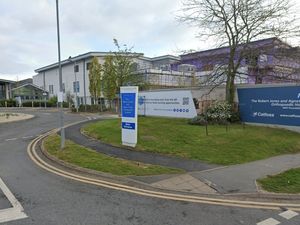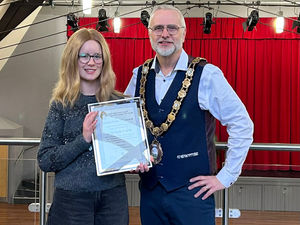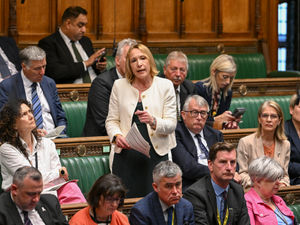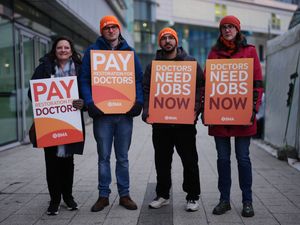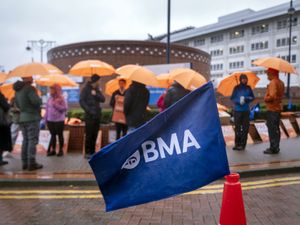Thank you evening for Royal Shrewsbury Hospital League of Friends
Whether it was funding lifesaving monitors for Covid patients or keeping shops open for grateful NHS staff, the League of Friends of the Royal Shrewsbury Hospital stepped in to provide vital support for those at the front line of the pandemic.
Staff and volunteers from the League have been thanked during a special evening, hosted by Salop Leisure.
From the start of the pandemic in March 2020, staff at Royal Shrewsbury Hospital worked tirelessly round the clock to save as many lives as they could.
The Friends of the RSH carried on providing support and responded quickly to an urgent request from the hospital trust to fund 10 portable monitoring modules for patients needing vital signs monitoring within the critical care unit.
The monitors are detachable but retain patient details and will allow continual full monitoring during transfer to theatres or ITU. This transfer activity increased in the critical care areas due to the coronavirus.
While many of the volunteers were unable to go into help – shielding because of their age – a small band stepped forward to offer their help to keep the shops open so that the staff could get snacks and other items.
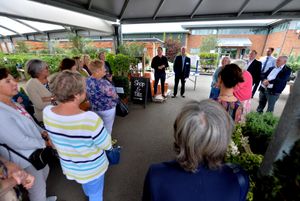
Shop manager Lee Herkes said “The pandemic has thrown up a lot of challenges in trying to keep the shops open, especially during the lockdowns.
"Fortunately the few staff and volunteers that were still able to come in have pulled together and worked wonders, often going far above and beyond what was expected of them.
"Thankfully we managed to keep two of the shops open and hospital staff and patients have been so grateful. More staff and volunteers are now starting to return and we have reopened a third shop and, of course, will continue to follow the guidelines”.
Salop Leisure said that hosting the League of Friends evening, was a way of saying thank you for the hard work throughout the pandemic and the general fundraising.
Richard Steventon, executive chairman of the League of Friends of the Royal Shrewsbury expressed sincere gratitude to Salop Leisure for organising this special event.
He said: "During these challenging times our fundraising committee too have been very busy coming up with all sorts of wonderful and inventive ways to raise funds for much needed equipment to improve patient care and help save more lives.
"I would also like to take this opportunity to say a huge thanks to all our donors who have continued to support us, even during these very difficult times."
Julia Clarke, Director of Public Participation at Shrewsbury and Telford Hospital NHS Trust, said: “We are incredibly grateful for all the wonderful support that we receive from The League of Friends of the Royal Shrewsbury Hospital. They have helped to fund additional medical equipment for the trust that really does make a difference to our patients – and to our staff who are providing their care.
"Most recently the trust has been gifted interacoustics balance equipment for audiology, a new bladder scanner, an ophthalmology yag laser and a cardiac output monitoring unit as well as £30,000 towards the extension and improvement of the Hamar Centre”.
“Thank you to everyone who fundraises for the League of Friends, and also to all those who bought a raffle ticket in the Friends Summer Draw.”
Volunteers and staff who make such a difference
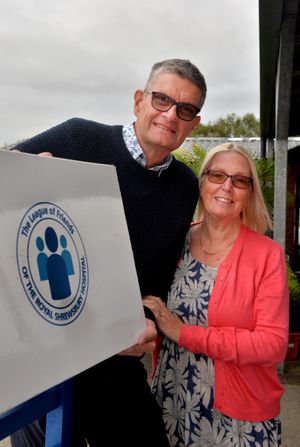
Peter and Julie Crinson joined the League of Friends of the Royal Shrewsbury Hospital after moving from Oxford to Shropshire four years ago.
"We wanted to meet people and, as our house was five minutes walk from the hospital, it seemed the best way to get involved in the community," Peter said.
Both now aged 62, they were among the younger of the shop volunteers and not shielding, so were able to continue to help.
They went in to keep the shop open for two or three shifts each week, sometimes working from 7am until 5.30pm.
"I would guess that only about 10 per cent of us were able to offer our help," Peter said.
"We did a lot of deep cleaning to ensure everything was Covid secure."
Julie said it was the appreciation of the staff that made the volunteering worthwhile.
"They were working so hard and kept thanking us for keeping the shops running.
"Lee, the shop manager, created special food boxes for the staff to buy at the end of their shifts, with milk, bread, eggs and other necessities. There were also veg boxes."
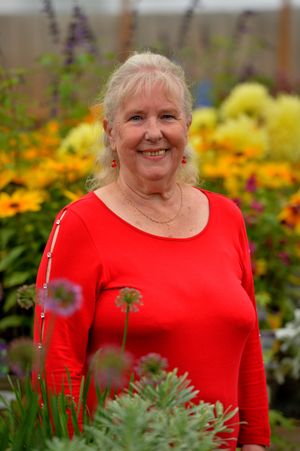
Gillian Keates has only been back working in the League of Friends shops at the hospital for a few weeks.
Aged 75, she came within the over-70s age group that had been told they should not be in the hospital.
In fact when the pandemic hit, Gillian was on the other side of the world, visiting her daughter for her 40th birthday.
As in the UK, Australia when into lockdown and Gillian had to go and live with her sister who also lives there.
"My daughter is an A&E nurse and so she wasn't allowed to see anyone," she said.
"I was there for about six months, it was a frightening time."
Gillian is now back as a paid member of staff in the League of Friends shops at the hospital.
She has been really impressed with the Covid-secure changes that have been made.
"It has been hard to get used to as there have been so many changes, including only having contactless payment," she said.
"But the screens that have been put in and the one-way system around the shops really do make everyone feel much safer."
"Even now everyone is so grateful that the shops and cafes are open."
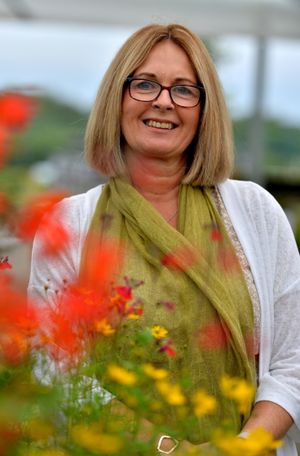
Vanessa McCloy, a paid worker for the League of Friends, said the shops could not have stayed open without the volunteers who had stepped up to help.
"We could only ask those under the age of 70 if they felt able to volunteer and we could not have remained open without them," she said.
Along with Debbie Brown and the manager, Lee Herkes, they worked six days a week to ensure staff could still pay the essentials along with drinks, sandwiches and snacks.
"We closed one of the shops to create a quiet room for the staff if they needed to get away for a break," said Vanessa.
"The staff told us how much they needed that time.
"They would come in with mask marks on their face, looking completely exhausted."
Vanessa and the other paid staff were praised by volunteers including Rosie MacKune, Sue Murphy and Jackie Spooner.
"It was a hard decision, initially to decide whether to go in and volunteer in the hospital," Sue Murphy said.
"But the systems that were put in place to keep everyone safe did make us feel very secure."

